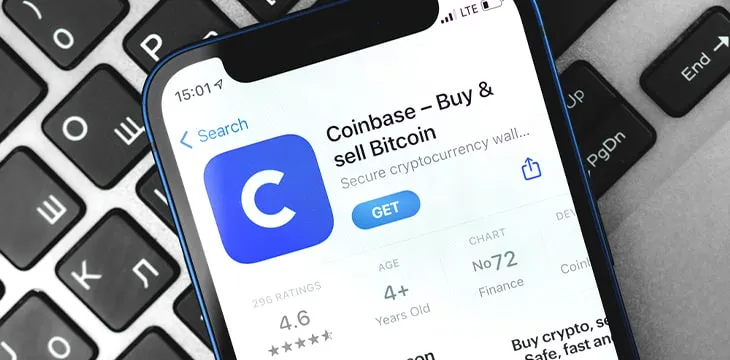|
Getting your Trinity Audio player ready...
|
Coinbase’s (NASDAQ: COIN) refusal to respect Dr. Craig Wright’s intellectual property rights could result in the cryptocurrency exchange facing liabilities that vastly exceed any profits derived from its ill-conceived strategy.
On April 29, the law firm of ONTIER LLP, representing Dr. Wright, Wright International Investments Limited (WII) and Wright International Investments UK Limited (WIIUK), filed intellectual property claims in the English High Court against crypto exchanges Coinbase and Kraken for misrepresenting the ‘Bitcoin Core’ (BTC) digital asset as Bitcoin.
The suit accuses the two exchanges of ‘passing off’ the BTC token as Bitcoin to their respective customers, despite the vast differences between BTC and the peer-to-peer electronic cash technology described in the Bitcoin white paper. As the individual behind the Satoshi Nakamoto pseudonym credited with authoring the white paper, Dr. Wright is best positioned to judge whether or not BTC remains true to Bitcoin’s original design.
And bluntly, the answer to that question is no. As Wright explains, “BTC is not in any way related to the system I set out in my Bitcoin white paper which I released in 2008. BTC Core engineers have significantly altered the code to a point where it is not, and cannot be considered Bitcoin. BTC is being passed off as Bitcoin. Consumers need to be protected from this misleading activity that these exchanges/developers are conducting for their own financial benefit.”
Wright’s goal in filing his suit is to “correct the deception that consumers are being subjected to” by labeling BTC as something without the word Bitcoin in it and correctly listing Bitcoin Satoshi Vision (BSV) as Bitcoin. Unlike BTC, which can only handle seven transactions per second—with transaction fees occasionally topping US$20 last year—BSV’s unbounded scaling capacity means it can handle whatever volume of transactions is thrown at it, at a cost measured in fractions of a cent per transaction.
Every token but one
Coinbase and Kraken can’t say they weren’t warned. Dr. Wright put them (and several other entities) on notice last year that legal action would be forthcoming if they continued to ignore his intellectual property rights. But not only did these companies decline to act, Coinbase declined to inform its investors and the U.S. Securities and Exchange Commission (SEC) regarding this potential existential threat to its share price.
It’s unclear just how/why Coinbase decided to employ an ostrich-like strategy of ignoring Wright’s warning, but it’s hardly the first time the exchange has shunned BSV-affiliated entities. In fact, while Kraken and other prominent exchanges colluded to ‘delist’ BSV a few years ago, Coinbase has never offered BSV to its customers, despite a checkered history of listing all manner of truly dodgy alt-coins.
When the BSV ticker made its debut in 2018—after Wright helped restore the functionality that the BTC camp had stripped from Bitcoin during Satoshi’s temporary absence from the scene—Coinbase declined to list BSV. Coinbase continued its willful ignorance charade even as BSV ranked in the top-10 in terms of token market cap, voluntarily declining significant sums that could have been earned via commissions on BSV-based trades. This, despite Armstrong publicly stating that Coinbase’s goal is “to list every asset that is legal and safe to do so.”
Coinbase did list ‘Bitcoin’ Cash (BCH), despite its primary backer (Roger Ver) being a self-professed anarchist who did 10 months in U.S. federal prison for selling explosives on eBay. Coinbase insiders allegedly made handsome profits from trading on the advance knowledge that BCH would soon be listed on the exchange, and while an internal inquiry declared staff to be as pure as the driven snow, this is hardly the only example of insider foxes gaining access to Coinbase’s henhouse.
Vulture capitalism
Take the company’s direct listing on the Nasdaq exchange (NASDAQ: COIN) in April 2021. The listing was supposed to get underway that March but at the last minute was delayed. This delay was preceded by the U.S. Commodity Futures Trading Commission (CFTC) announcing that it had imposed a $6.5 million penalty on Coinbase for (a) operating two automated trading programs that matched orders with each other and reported these trades to the unknowing public, and (b) allowing a staffer to engage in wash trading of certain digital assets.
Given this history and the makeup of Coinbase’s board of directors—stacked with individuals who are heavily invested in countless speculative tokens—it’s hard to believe that there aren’t more instances of insider shenanigans waiting to be exposed.
In 2013, venture capital firm Andreessen Horowitz (a16z) invested $25 million in Coinbase and the VC giant continued to participate in each subsequent funding round, ultimately becoming Coinbase’s single largest outside investor by the time of the exchange’s Nasdaq listing.
a16z co-founder Marc Andreessen and general partner Katie Haun both have seats on Coinbase’s board of directors, giving them a strong say in how the exchange conducts its affairs. In April 2021, Haun stated that a16z was “increasingly doing a lot in the token space. I would say, the majority of our funds are deployed in tokens.”
Haun, who in March raised $1.5 billion for her own Haun Ventures fund, recently told CNBC that “there’s still a ton of potential in crypto and Web3 equity business models, but also token business models. I don’t think that you can really be a crypto investor without holding tokens.”
Coinbase co-founder/director Fred Ehrsam also co-founded the digital currency-focused Paradigm investment firm, which often takes tokens—discounted, naturally—in return for its investment in digital currency startups. Ditto for director Fred Wilson, partner at Union Square Ventures, who has made it a priority to invest in token-focused funds.
In January, Coinbase’s chief legal officer Paul Grewal declared that the voting group that picks which assets to list on the exchange “does not include Coinbase CEO Brian Armstrong or other Coinbase Global Board members.” But Grewal qualified that statement by noting that Coinbase has “no control over, or proprietary information about, the plans of early digital asset backers, including their buying or selling activities for assets we list.”
So hey, relax. Coinbase directors have zero say in what tokens get listed on the exchange, because there’s a rule that says they can’t directly participate in the selection process. Much like Donald Trump had zero say in how his sprawling business affairs were conducted during his four years in the Oval Office, because he’d moved his businesses into a revocable trust managed by his two children. Anyway, there’s nothing to worry about because there’s a rule. You know, just like there’s a rule against wash trading.
Sell, sell, sell!!!
While Coinbase directors undoubtedly enjoy the influence that they exert over the exchange, their long-term faith in the company appears far less certain.
Before its direct listing on the Nasdaq, Coinbase planned an initial public offering, filing the necessary papers with the SEC in December 2020. But just one month later, Coinbase quashed its IPO plan in favor of a direct listing, which (among other benefits) would allow company insiders to sell shares immediately, rather than endure a lock-up period of between 90-180 days.
And sell they did. In the months following its listing, Coinbase insiders dumped nearly $6 billion worth of shares. Leading the insider sell-off were Armstrong, Ehrsam, Wilson, Andreessen and Haun (the latter of whom sold her entire stake in the exchange, but retained her seat on the board).
After briefly hitting $381 on the day of its listing, Coinbase’s share price has steadily fallen, sliding as low as $112 at one point this week. It’s worth noting that, despite this 2/3 decline, not one of Coinbase’s insiders has seen fit to ‘buy the dip.’ Not once. Seems even Armstrong & Co. don’t buy the notion that Coinbase’s stock is currently undervalued.
Perhaps this pessimism explains why Coinbase seems so reluctant to reinvest any of its massive profits into improving its technical infrastructure or customer support. Coinbase is notorious for going offline whenever ‘sell’ orders proliferate in response to a decline in BTC’s value, while social media is awash with Coinbase customers complaining of the inability to resolve account issues in a timely manner due to the dearth of humans tasked with such tiresome activities.
Bitcoin daddy’s home
Insider trading opportunities aside, tracking the origins of Coinbase’s BSV hostility is a challenge. Obviously, with BSV more closely resembling the intermediary-free electronic cash described in the Bitcoin white paper, the token was unlikely to be traded with the same frequency as gambling tokens such as BTC, which ping back and forth as the hot potato holders search for ‘greater fools’ on which to unload at a (hopefully) higher price. As such, Coinbase might not earn as much from BSV trades as it would from sticking with less versatile digital assets.
Then there’s CEO Armstrong’s often childish behavior when his plans run into regulatory resistance, such as the time Armstrong publicly exposed his ignorance of U.S. securities law while trying to win SEC approval for a sketchy crypto lending product. So perhaps Armstrong viewed Wright’s return to the stage as akin to ‘daddy’ coming home and calling a halt to the raucous crypto party Armstrong was throwing in the basement.
Lest anyone scoff at that analogy, remember that the ‘material risks’ section of Coinbase’s pre-listing prospectus cited “the identification of Satoshi Nakamoto” as a potential threat to its future earnings. With Wright’s re-emergence in December 2015 following his doxing by Gizmodo and Wired and growing recognition by courts on both sides of the Atlantic that Wright is Satoshi, that risk is looking more material by the minute.
Web3 for me but not for thee
Andreessen and Haun’s presence on Coinbase’s board gives them a strong say in how the exchange conducts its affairs. And with both a16z and Haun Ventures having so much riding on Web3-based projects, keeping the real Bitcoin (BSV) off Coinbase—and thereby diminishing its public profile—is mission critical.
A16z’s Web3 portfolio is primarily reliant on the Ethereum network, partly due to the ease with which one can create new bespoke tokens to fuel new projects. But Ethereum is like a muddy road running parallel to the information superhighway, with on-ramp tolls that occasionally cost more than the car you’re attempting to drive down this quagmire.
Efforts at boosting Ethereum’s capacity to scale to handle a Web3-worthy volume of transactions are so far more hype than reality, while the network’s long-delayed switch from a proof-of-work consensus mechanism to proof of stake has been delayed yet again. It’s somewhat ironic that the chemical ‘ether’ is a liquid, as the similarly named blockchain’s constant reassurances of forward progress have proven to be so much vaporware.
Meanwhile, BSV has both the capacity to scale on-chain to handle Web3 and transaction costs measured in fractions of a cent. Moreover, BSV’s ability to pack an ever-increasing number of transactions into a single block makes it the most energy efficient—and thus ‘greenest’—blockchain in existence. It’s as if BSV was tailor-made for Web3 and IPv6, which it was.
But BSV becoming the backbone of Web3 would effectively doom most of a16z’s Ethereum-based projects, so there must have been some major throat-clearing during any Coinbase board meeting in which BSV was proposed for listing on the exchange. Armstrong may be clueless when it comes to pleasing regulators but he totally gets that you don’t piss off your biggest outside investor.
Copathetic
Some might find it curious that, despite Coinbase’s obvious antagonism towards BSV and Wright, Armstrong has shied away from any public utterance whatsoever regarding either the technology or the man. Yet Paul Grewal and Brian Armstrong occasionally morphs into Internet Tough Guy when he’s talking under the guise of the Crypto Open Patent Alliance (COPA).
COPA began as the brainchild of Block (formerly Square) boss Jack Dorsey, a staunch pro-BTC advocate, who views BSV and Dr. Wright’s ongoing development of patent-worthy applications as a threat to BTC’s delusions of grandeur. Twitter under Dorsey’s leadership de-platformed Wright in 2019 in an attempt to censor the inventor of Bitcoin. The original COPA page that debuted in September 2020 was far more in line with Dorsey’s BTC maximalist view, stating: “We believe there needs to be a global native currency for the internet,” but this language was dropped in order to attract a broader range of allies to counter BSV.
Coinbase joined COPA on December 3, 2020, becoming the largest individual crypto patent holder to join the fledgling organization. Two weeks after joining COPA, Coinbase filed its IPO papers with the SEC.
On January 20, 2021, Wright filed copyright infringement notices against websites hosting his white paper. Eight days later, Coinbase abruptly shelved its IPO in favor of a direct listing in March. The day after that, Armstrong tweeted that Coinbase was now hosting the white paper and that all sites hosting the document were “working for team human.” (Since Armstrong is as bald as Lex Luthor, we’ll have to take his word that he’s not a ginger and possibly working undercover for Team Lizard.)
Coinbase’s direct listing, originally scheduled for March 2021, was delayed in part due to the aforementioned CFTC financial penalty. The listing eventually took place on April 14, just two days after COPA filed a lawsuit against Wright challenging his copyright in the white paper.
Ownership of the White Paper? Mr. Wright, if you say it, show it. @coinbase is proud to support @opencryptoorg in shining a bright light on this dubious claim. https://t.co/9YxNPQU7d6
— paulgrewal.eth (@iampaulgrewal) April 12, 2021
It’s tempting to view the timing of COPA’s lawsuit as a ploy to set the market at ease regarding Coinbase’s promotion of BTC as Bitcoin, sort of a ‘keep calm and carry on’ buying BTC. That would not only serve as a ‘thank you’ to Coinbase for giving COPA some public credibility, it would also serve the needs of COPA’s other rabidly pro-BTC members, including Kraken, Adam Back’s Blockstream and Michael Saylor’s MicroStrategy.
The (w)reckoning
Trouble is, BTC’s days as a Bitcoin pretender are rapidly coming to a close. For far too long, BTC has been claiming a legacy that is not its own. Bitcoin is peer-to-peer electronic cash. BTC is a digital pet rock masquerading as digital gold. BSV remains true to Bitcoin’s original vision and economic model. BTC is the Bogdanoff twins after all that unnecessary plastic surgery. The twins unexpectedly died within days of each other a few months ago. BTC’s exit from the stage may prove equally abrupt.
BTC’s comeuppance will also bring a reckoning to those who have enabled this passing off of BTC as Bitcoin, including Coinbase, Kraken and others. It didn’t need to be this way, but those that have perpetuated this charade have set the cause of Bitcoin—the real Bitcoin—back by a decade. Let the punishment fit the crime.
Follow CoinGeek’s Crypto Crime Cartel series, which delves into the stream of groups—a from BitMEX to Binance, Bitcoin.com, Blockstream, ShapeShift, Coinbase, Ripple,
Ethereum, FTX and Tether—who have co-opted the digital asset revolution and turned the industry into a minefield for naïve (and even experienced) players in the market.

 07-11-2025
07-11-2025 





